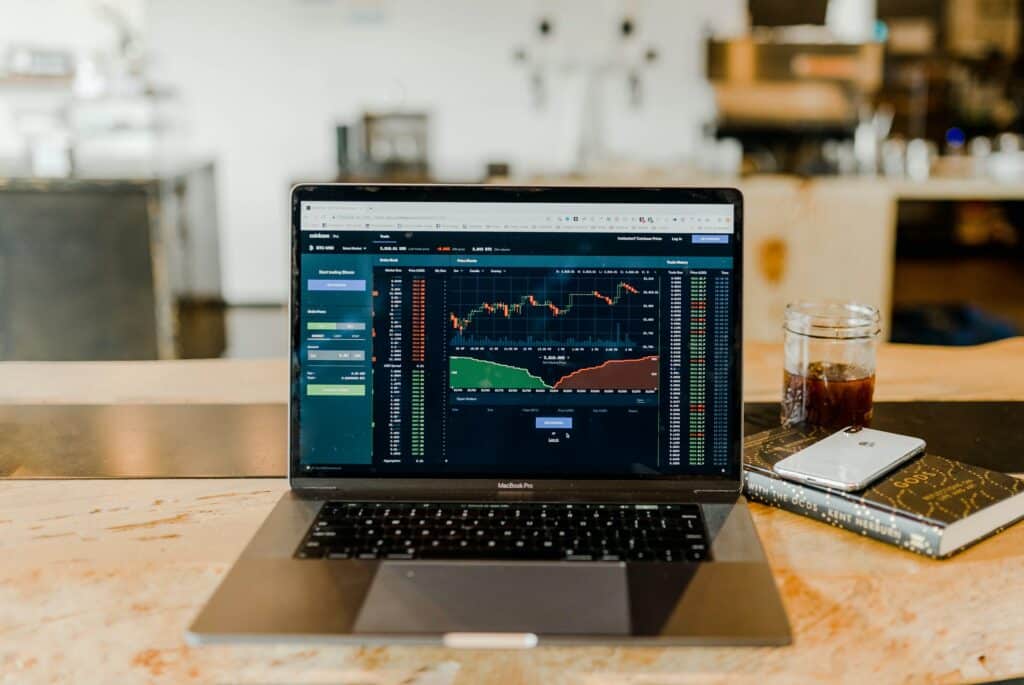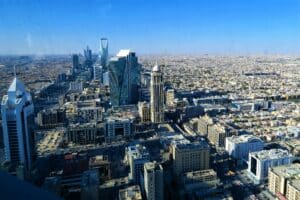What Is The Greatest Approach To Investing In Saudi Arabia and Its Financial Sector in 2022 – that will be the topic of today’s article.
Identifying the greatest approach to investing in Saudi Arabia and its financial sector in 2022 includes exploring overseas investment strategies tailored to the country’s economic landscape.
If you want to invest as an expat or high-net-worth individual, which is what i specialize in, you can email me (advice@adamfayed.com) or use WhatsApp (+44-7393-450-837).
Introduction
Investing In Saudi Arabia—With a growing selection of investment vehicles to choose from, an increasing number of foreign individuals and permanent expats are understanding the benefits of investing in Saudi Arabia. This comprehensive handbook explains everything.
Historically, companies with vast pockets and big intentions for Saudi Arabia have dominated foreign investment in the country. Property, start-ups, and investment funds are among the new and exciting financial choices offered to intelligent, ambitious foreigners.
Saudi Arabia Is A Lucrative Investment Destination
Saudi Arabia is a major company when it comes to investment. In actuality, SR13 billion in foreign direct investment was received by the Kingdom in 2018. It is also ranked 44th in the Global Foreign Direct Investment Country Attractiveness Index for 2020. However, that is only half of the story.
The Saudi government seeks to attract more foreign investment in emerging areas as part of its long-term economic strategy. Logistics, health, education, infrastructure, entertainment, clean energy, defense, tourism, and mining are all examples of this. Essentially, the goal is to diversify the economy away from its reliance on oil.
In mid-2015, the Saudi stock exchange opened its doors to overseas institutional investors. Non-Saudis can also buy property (subject to Ministry of Housing approval). Furthermore, the entrepreneurial ecosystem is thriving. For example, the Kingdom welcomes enterprises that are entirely controlled by foreigners. According to the Heritage Foundation, which compiles the yearly Index of Economic Freedom, “the financial sector is open and offers a choice of possibilities.” “Because there is no minimum capital requirement, the procedure of forming a firm has also been simplified,” it continues.
A stable economy (albeit one that is vulnerable to regional geopolitical events), consolidated finances, and a well-regulated financial system support all of this. The fact that the Kingdom is ranked 91st freest economy in the world implies that there is still work to be done, for example, in areas like the legal framework for resolving commercial disputes and addressing transparency issues in areas like intellectual property legislation. Saudi Arabia, on the other hand, is a nation of opportunity, where the adage “he who dares wins” holds true.

Saudi Arabian Savings Account Investments
Expats can open a variety of current, savings, and deposit accounts with Saudi banks. SABB, Samba, Bank Albilad, Alawwal Bank, Riyad Bank, Banque Saudi Fransi, Arab National Bank (ANB), Saudi Investment Bank, and MEEM are among these financial institutions. Visit souqalmal.com to compare different accounts, learn about eligibility requirements, charges, and account creation procedures.
Saudi Arabian Pension Investments
Expats in Saudi Arabia are not required to pay into the government’s social insurance system. In fact, it is customary for expats to contribute to their employer’s pension plan. Furthermore, some expats prefer to continue contributing to their home country’s social insurance schemes. They could also choose to invest in a private pension plan.
Saudi Arabian Property Investments
The real estate market in Saudi Arabia is growing and changing. It currently accounts for roughly 5% of the state’s GDP, but the administration hopes to quadruple that amount in the next few years. Demand outstripped supply (mostly in major cities) and the economy developed steadily and robustly during the last decade, driving up real estate prices.
As new residential units enter the market and broader economic growth slows, prices are now dropping. Indeed, according to Knight Frank’s Global House Price Index Q3 2018, prices in Saudi Arabia fell 3.7 percent from the same period last year, making it the index’s worst-performing country.
The most developed property markets in Saudi Arabia are in Riyadh, Jeddah, and Dammam (and are where most expats live and work). New residential constructions are cropping up across the three cities, ranging from cheap dwellings to upscale condos. Meanwhile, major new urban transportation projects, like as the Riyadh Metro, are expected to drive up housing prices, particularly near stations.
Investing In Saudi Arabia and Learning Its Laws
Expat residents in Saudi Arabia can acquire property, but not land, according to Saudi legislation. The property must, however, be used as a primary dwelling and not solely for investment purposes. All foreign investors and expat residents are prohibited from entering the holy towns of Mecca and Medina. Although no recent statistics on expat property ownership in Saudi Arabia are available, anecdotally, the majority of expats choose not to buy. Because the vast majority of expats have housing included in their contracts, this is the case.
Investing in real estate in Saudi Arabia requires a lot of patience. The first step is to obtain a letter of approval from the Ministry of Housing. It could take up to a year for this to happen. After that, the price is discussed between the buyer, seller, and an intermediary such as a lawyer or broker. Following the negotiation of a private purchase agreement, the investor will seek certification from the local Sharia Court that the seller owns the property. The transfer of title is subsequently documented, and the title document is stamped by the Court to signify that ownership has legally transferred.
Obtaining a mortgage in Saudi Arabia is a difficult task.
Currently, twelve local banks offer mortgages to expats. Al Rajhi Bank, Alinma Bank, Arab National Bank, Bank Al Jazira, Bank Albilad, Banque Saudi Fransi, NCB, Riyad Bank, SABB, Saudi Investment Bank, Samba, and Alawwal Bank are among them. For the best bargains, go to Souqalmal.
In addition to your income, a Saudi bank would most likely consider the status and reputation of your employer when determining your mortgage eligibility. The usual rule is that the larger and more stable the business, the better. Once your mortgage is granted, the bank will usually deduct the monthly payments from your salary account by direct debit.
House costs vary by location, which is unsurprising. Because Riyadh, Jeddah, and Dammam are home to the majority of the Kingdom’s population, they have the highest pricing. In Riyadh, an elegant three-bedroom property may sell for $800,000. Alternatively, you can spend roughly $300,000 on a luxurious condo. When buying a home in Saudi Arabia, remember to use common sense, just as you would in any other country. For example, because most paperwork will be in Arabic, engage a skilled lawyer and an excellent translator. Do your own due diligence and market study as well. It’s worth noting that some investors have lost money on stalled housing projects due to the developer’s bankruptcy.
Saudi Arabia Is A Great Place To Invest
“We’re ready to do business.” This is the Saudi government’s appeal to foreign investors. The reality, like practically everywhere else, is a little more complicated. With the exception of oil and mining, foreigners can (and do) invest in all aspects of the Kingdom’s economy. However, according to the World Bank’s 2019 Doing Business ranking, the country ranks 92nd out of 190 countries. This shows that things aren’t always easy for overseas investors.
If you’re an entrepreneur, you’ll have plenty of help and advise. Small and medium-sized businesses (SMEs) account for around a fifth of the country’s gross domestic product (GDP). The government wants this figure to reach 35% by 2030. According to the 2019 Global Entrepreneurship Monitor study, nearly three-quarters of people questioned in Saudi Arabia perceived good chances to start their own firm, the second-highest figure among the 49 nations studied.
Procedures For Starting A Business
The process of starting a business is getting more streamlined, and there is a wealth of information and advice available to entrepreneurs. Contact the Small and Medium Enterprises Authority for help with funding and marketing and exporting. Meras, a program that provides a website and a statewide network of one-stop shops for company start-ups, is also worth a look.
The Investment Services Centre of the Saudi Arabian General Investment Authority (SAGIA) is also quite helpful. It offers commercial licenses and can provide advice on additional requirements, like as visas, for foreign investors in the Kingdom. In Saudi Arabia, foreign investors can select between three business structures
Limited Liability Company (LLC)
SR500,000 is required as a minimum start-up capital. The LLC must have a minimum of two shareholders (neither of whom must be Saudi); it must also be audited annually.
Branch Office
Foreign enterprises are welcome to conduct business here. The parent company is fully responsible. SR500,000 is required as a minimum start-up capital. Because there are no Articles of Association to approve, this structure is easier to set up than an LLC.
Representative Office
A Technical and Scientific Office (TSO) is a company that allows a manufacturer to give technical support to a local market through a distributor. It is unable to engage in commercial activity or generate income. A short-term business founded for the purpose of a specific government contract, or Temporary Company Registration (TC).
Saudi Arabian Investment Funds
An investment fund, according to Investopedia, is “a pool of funds from a number of investors pooled together to acquire securities while each investor retains ownership and control of his or her own shares.” It goes on to say that an investment fund offers a bigger range of investment choices, more management knowledge, and fewer investment fees than an individual investor could get on their own.
Mutual funds, exchange-traded funds (ETFs), and bonds are among the investment vehicles offered to foreign investors and expats in Saudi Arabia. According to an investor’s risk appetite and profile, Jadwa Investment administers a variety of mutual funds. Riyad Capital provides sukuk (Islamic bonds), ETFs, and bond market trading services. Al Rajhi Capital, on the other hand, offers a diverse range of managed mutual funds. The HSBC Global Equity Index Fund, on the other hand, invests in global sharia-compliant stocks. Each will be able to advise you on how to invest, how much to invest, as well as expenses, dangers, and expected returns, all based on your risk tolerance.
Saudi Arabia stated in April 2019 that it would open up its government bond market to individual investors, with the goal of encouraging people to save. Instead of the SR1 million previously offered, government sukuk, or Islamic bonds, will be sold in SR1,000 increments. To encourage trade, the Kingdom has also slashed fees and trading commissions for the local bond market.
Investing In Saudi Arabian Equities And Shares
The Saudi Stock Exchange is the largest stock exchange in the Middle East. Its overall capitalization was SR1.85 trillion at the end of 2018, up 10% from the end of 2017. Furthermore, foreign corporations can trade on the stock exchange and can possess up to 49 percent of any publicly traded company. Foreigners, on the other hand, cannot.
To invest in the Saudi stock exchange, most institutional investors use the services of a broker or investment bank like Morgan Stanley or Credit Suisse. On the Saudi stock exchange, the Capital Market Authority launched the Real Estate Investment Traded Fund (REIT) in 2016. REITs can now be traded on the exchange by non-resident international investors.
Saudi Arabian Offshore Investments
Saudi Arabia, unlike several other foreign jurisdictions, does not provide any type of offshore investment vehicle to Saudis or non-Saudis.
Saudi Arabia Levies An Investment Tax
In Saudi Arabia, there is no personal income tax. The income tax charged on a foreigner’s participation in a Saudi resident corporation is an example of taxable income for expats, unless the firm is sold on the stock exchange, in which case zakat, an Islamic tax, is applied.
A 20% capital gains tax is imposed on the sale of shares in a resident corporation. If shares of a publicly traded firm were acquired after 2004, capital gains on the sale of those shares are nil. Corporations pay a 20% tax on their earnings. Saudi Arabia also has no capital gains tax, stamp duty, real estate tax, or inheritance tax. A great overview of the Saudi tax system is published by Deloitte.
How To Make Smart Investments In Saudi Arabia
Investing in Saudi Arabia may differ significantly from what you are used to, but the core concepts remain the same.
The bottom line is that you must complete your homework. Engage with people on the ground who can provide reliable, unbiased advice.
The majority of international investors seek advice and support from government institutions such as SAGIA and the Ministry of Commerce and Investment. You can, on the other hand, hire a lawyer to assist you in navigating the regulations.
Pained by financial indecision? Want to invest with Adam?

Adam is an internationally recognised author on financial matters with over 830million answer views on Quora, a widely sold book on Amazon, and a contributor on Forbes.



